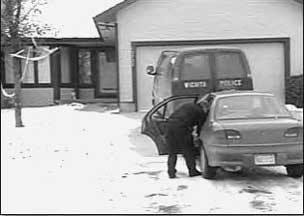
The deranged suspects opened fire after a brother of the three victims, Tahir Mehboob, scolded a minor boy for sitting on the bonnet of his guests’ car parked outside his home. They were allegedly shot dead by their neighbours on Monday over a petty dispute. The deceased were identified as Hafiz Tahir Mehmood, Tahir Masood and Hafiz Mohammad Zeeshan Yaqub. The police were said to be conducting raids to nab others who were involved in the incident. Asghar was also injured during the firing incident that claimed the lives of the three brothers. The suspects were identified as Rashida Bibi, her husband Asghar and her son Ghulam Abbas. Last year Scalia compared so-called liberal abolitionists on the court to Marie Antoinette for failing to understand the fear of violent crime felt by many Americans and the deterrent effect of the death penalty.īut Breyer and others have argued the increasing unwillingness of juries to recommend the death penalty shows that its continued use is becoming ever more arbitrary and unjust.Three suspects, including a woman, were arrested on Tuesday in the the murder case of three brothers in Shahdara Town, Lahore.

“That ambiguity and inequity is impermissible under the eighth amendment.”Įxpectations are that the US supreme court will stick to previous rulings that have refused to get involved in state disputes of this type and strike down the Kansas decision on the grounds that it misinterprets the eighth amendment.īut the cases, which Justice Samuel Alito described as “some of the most horrendous murders that I have seen in my 10 years here”, throw a spotlight on growing tensions over the dwindling use of the death penalty in the US. “A man is being put to death under jury instructions that are so confusing that there is a reasonable likelihood that some juries would interpret those instructions to bar consideration of the mitigating circumstances and others would not,” he said. That’s the entire point of mercy.”īut Neal Katyal, representing the Carr brothers, insisted that allowing jurors to potentially ignore mitigating evidence, such as the abusive childhood experienced by one of the brothers, meant they were subject to arbitrary justice. “It certainly doesn’t follow that the jury would have thought that they have to apply some burden of proof to mercy,” added Schmidt.

“It’s ironic that we bent over backwards to point out the heavy burden borne by the state and because we told them that regularly, they now turn this argument ,” he said. He admitted that judges had since been told to tighten up the instructions given to jurors but argued that the Kansas supreme court had wrongly invoked the eighth amendment protection against “cruel and unusual” punishment in the case. The Kansas attorney general, Derek Schmidt, warned that six of the nine prisoners on death row in the state could have their sentences overturned if the cases before the court were upheld. “I very much doubt that jurors have heard of that maxim,” said Sotomayor after Scalia used the phrase “ expressio unius est exclusio alterius” to describe how in telling jurors that exacerbating factors should be proven beyond reasonable doubt judges should make it clear by contrast that mitigating factors need not be.

Asking how many death row cases there were in Kansas, Justice Antonin Scalia said the total of nine cases suggested “that Kansans, unlike our Justice Breyer, do not think the death penalty is unconstitutional and indeed very much favour it”.īut Scalia came under attack too from another liberal, Sonia Sotomayor, who ridiculed his use of Latin to argue that jurors would know not to apply a higher burden of proof to mitigating evidence.


 0 kommentar(er)
0 kommentar(er)
